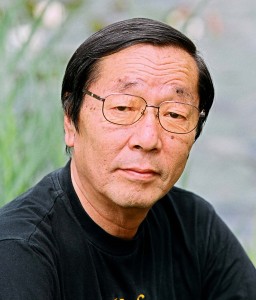A Quote by Eric Fischl
Personally, I never believe an artist saying "I do it for myself" is saying the truth, because why would you go through the trouble of making something that goes out into the world if you didn't care about somebody else seeing it? It's like the difference between those who choose "more comfortably termed entertainment" versus what people think of as the "art life," which is supposedly more monastic or spiritual. I don't believe in those distinctions.
Quote Topics
About
Art
Art Life
Artist
Because
Believe
Between
Care
Choose
Comfortably
Difference
Distinctions
Don't Believe
Else
Entertainment
Go
Goes
Life
Like
Making
More
Myself
Never
Out
People
Personally
Saying
Saying The Truth
Seeing
Somebody
Something
Spiritual
Supposedly
Think
Those
Through
Trouble
Truth
Versus
Which
Why
World
Would
Related Quotes
It's like the iPod playlist has killed the way we think of the normal album, so let's think of this as just saying you go into your record store and all those categories and all those different ways of segregating music have been thrown out the window, so the difference between myself in real life in that is that I'm the opposite.
Very few people want to hear the truth. Bogie was like that, my mother was like that, and I'm like that. I believe in the truth, and I believe in saying what you think. Why not? Do you have to go around whispering all the time or playing a game with people? I just don't believe in that. So I'm not the most adored person on the face of the earth.
What I never wanted in art - and why I probably didn't belong in art - was that I never wanted viewers. I think the basic condition of art is the viewer: The viewer is here, the art is there. So the viewer is in a position of desire and frustration. There were those Do Not Touch signs in a museum that are saying that the art is more expensive than the people. But I wanted users and a habitat. I don't know if I would have used those words then, but I wanted inhabitants, participants. I wanted an interaction.
I believe my research "validates" is the idea that "the water holds and transmits information." I believe that the more we properly understand water, the more we can expand our consciousness into other dimensions. The validation for me personally has been invaluable because to be honest I could not sense the invisible world through my own sensibilities. When people would speak of the inner world of our psychology I would wonder if that was even possible, but through seeing how our thoughts have an observable effect on water I no longer doubt and it's because of this validation.
We have more information than ever before, and it is harder to avoid actually seeing what the other side is saying. Yes, we in Business insider focus on publications that we feel speak to us, but that is the same way it was 20 or 100 years ago. In the US, two million people have subscribed to the New York Times and many more millions think it is a terrible, liberal paper they would never read. We can choose to put ourselves in a bubble of only people who agree with us, but in the digital world there are many more ways of saying "Hey, here is something you might want to consider".
This is not just a simple story of "money can't buy happiness." Or maybe that's just what it is. And if it is, why shouldn't it be? Because if this is something we are already supposed to know, then why don't we know it? Why do we chase and scrabble and fight for things to flaunt, why? Why do we reach for power over other people, and through the thin superiority of our possessions, believe we have it? Why do we let money make people bigger, and allow those without it to be made smaller? How did we lose the truth in the frantic, tribal drumbeat of more, more, more?
Every single bit of entertainment is escapism. It's because you are saying, "Let's see what this other person's life is like." And also it's beyond escapism, its entertainment and art as such can elevate the species. The entertainer supposedly is the muse. They're the ones who tell you what is wrong with society in a humorous way. They're the ones who do an expose about this or a documentary about that about the injustice of this. So it can be a very powerful medium.
The more you lecture those running the companies on how they need to give more breaks to women or other minority groups and be more open-minded to their work products and perhaps question themselves on a double standard, the more some of those people shut down to your messaging. I'm not saying it's right; I'm just saying you can very easily get labeled as someone who sees everything through a prism of race or gender or what have you. So we have to walk a fine line. It's sad but it's the truth.
I would imagine, a very large percentage of people who get something for art and they do something else, and they have some excess resources. And they trade those resources with artists whose work makes them feel good, or feel better, or question. And the artist, if they're smart, they use it to buy the most expensive thing in the world: time to make more. The more that come, the better it is for these people, their children, the people they care about, fills the society with a real constant thing.
I'm interested in such things as the difference between how we perceive the world and what the world turns out to be. The difference is between the stories we tell others and the stories we tell ourselves. There is a wonderful Russian saying, which I use as the epigraph of one of my novels, which goes, He lies like an eyewitness. Which is very sly, clever and true.








































